Traitement à la vapeur à haute température pour les déchets présentant un risque biologique
Le traitement à la vapeur à haute température est une méthode efficace de désinfection et de stérilisation des déchets médicaux. En exposant les déchets à de la vapeur à haute pression et à haute température, les protéines microbiennes contenues dans les déchets sont dénaturées et coagulées, ce qui tue les agents pathogènes et rend les déchets inoffensifs.

Principales caractéristiques du traitement à la vapeur à haute température

Stérilisation et désinfection
Température: >134°C Pression: >0,22 MPa (pression manométrique) L'heure: >45 minutes Le processus inactive efficacement les spores bactériennes, les virus, les champignons et d'autres agents pathogènes, y compris des virus dangereux tels que le COVID-19 et l'hépatite B.

Réduction
Le traitement à la vapeur à haute température décompose, ramollit ou liquéfie les matières organiques, réduisant ainsi le volume et le poids des déchets médicaux de 30%-50%. La teneur en humidité après séchage doit être inférieure à 20% du poids total, et la taille du matériau broyé ne doit pas dépasser 5 cm.

Destruction
La vapeur à haute température peut déformer les articles en plastique tels que les seringues et les tubes de perfusion, et briser les produits en verre, ce qui empêche le recyclage illégal et minimise les risques pour la sécurité médicale.
Balances et applications correspondantes

Petite échelle
Convient aux petits hôpitaux, cliniques, laboratoires et institutions médicales. Capacité typique : 50-150 kg par cycle, conçu pour des quantités faibles à modérées de déchets médicaux.
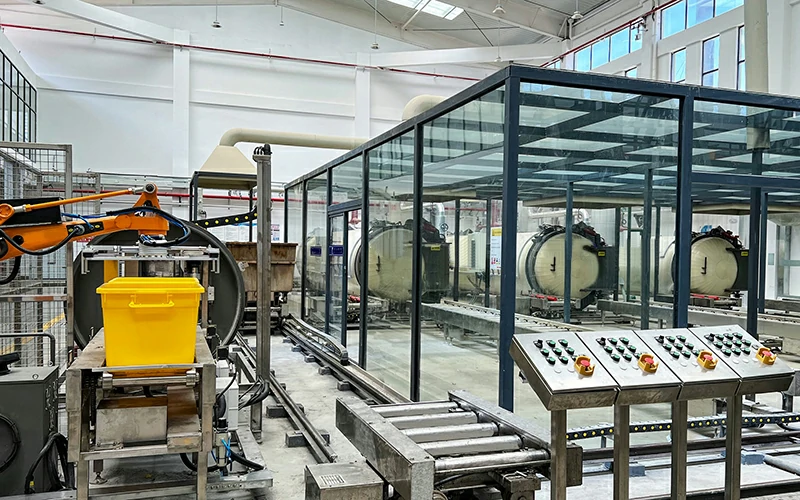
Moyenne échelle
Convient aux hôpitaux, cliniques ou centres de traitement des déchets médicaux de taille moyenne. Capacité typique : 150-500 kg par cycle, capable de traiter une plus large gamme de types de déchets, y compris les déchets chirurgicaux, les poches de perfusion et les dispositifs médicaux.
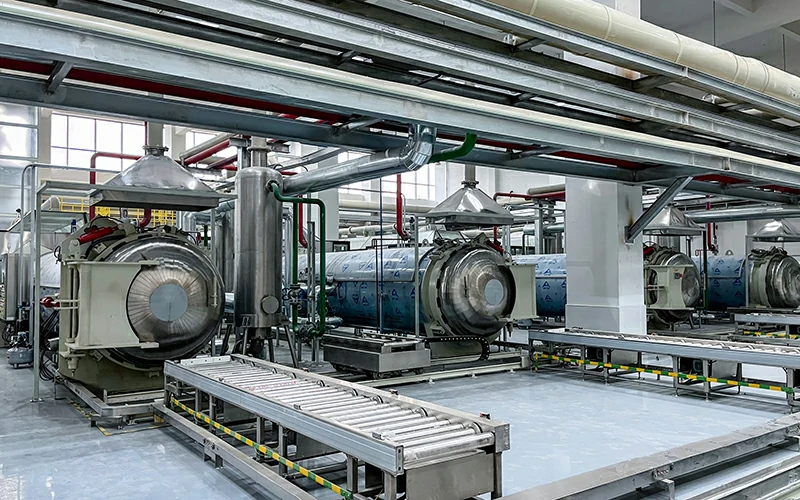
A grande échelle
Convient aux grands hôpitaux, aux usines de traitement des déchets médicaux et aux installations centralisées de gestion des déchets. Capacité typique : 500-2000 kg par cycle ou plus, conçu pour de grands volumes de déchets avec une automatisation avancée.
Avantages du traitement à la vapeur à haute température
Avantages pour l'environnement
Contrairement à l'incinération, le traitement à la vapeur à haute température ne produit pas de gaz nocifs comme les dioxines et les furannes, et réduit la pollution atmosphérique. Il n'est pas nécessaire de recourir à des systèmes complexes de purification des gaz de combustion, ce qui permet de réduire les coûts d'investissement et d'exploitation, ainsi que les risques de pollution secondaire.
Potentiel de valorisation des ressources
Les objets métalliques, s'ils ne sont pas gravement endommagés, peuvent être recyclés après traitement. Le plastique, le verre et d'autres matériaux peuvent être transformés en matériaux non médicaux, tels que des additifs pour la construction, ce qui améliore l'utilisation des ressources.
Performances en matière de sécurité
Le processus est le suivant plus sûr que l'incinération, sans risques liés à la combustion tels que les explosions ou les réactions chimiques.
Le système produit moins de bruit et de vibrationsLes opérateurs bénéficient ainsi d'un environnement de travail plus sûr et plus silencieux.

Processus opérationnel
01
Collecte des déchets
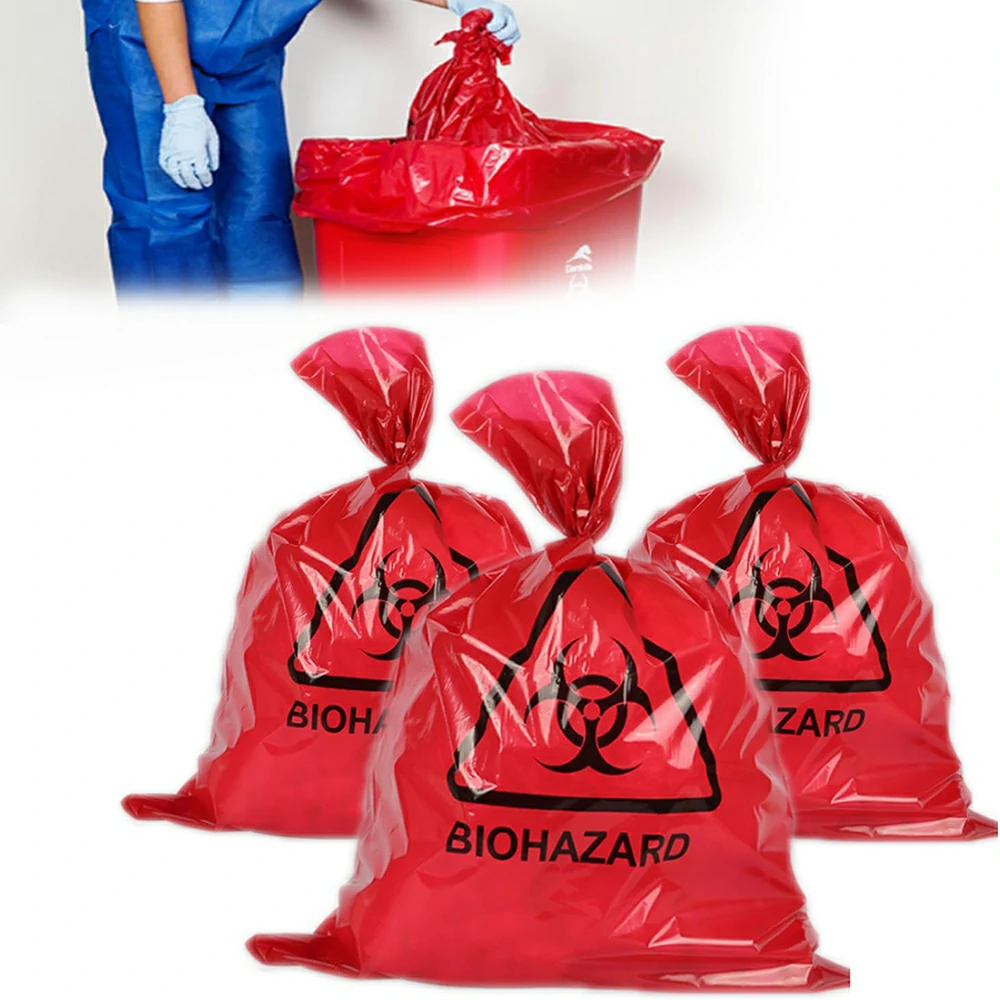
Les déchets médicaux sont collectés, placés dans des sacs résistants à la chaleur et scellés pour éviter les fuites.
02
Chargement dans la chambre de traitement
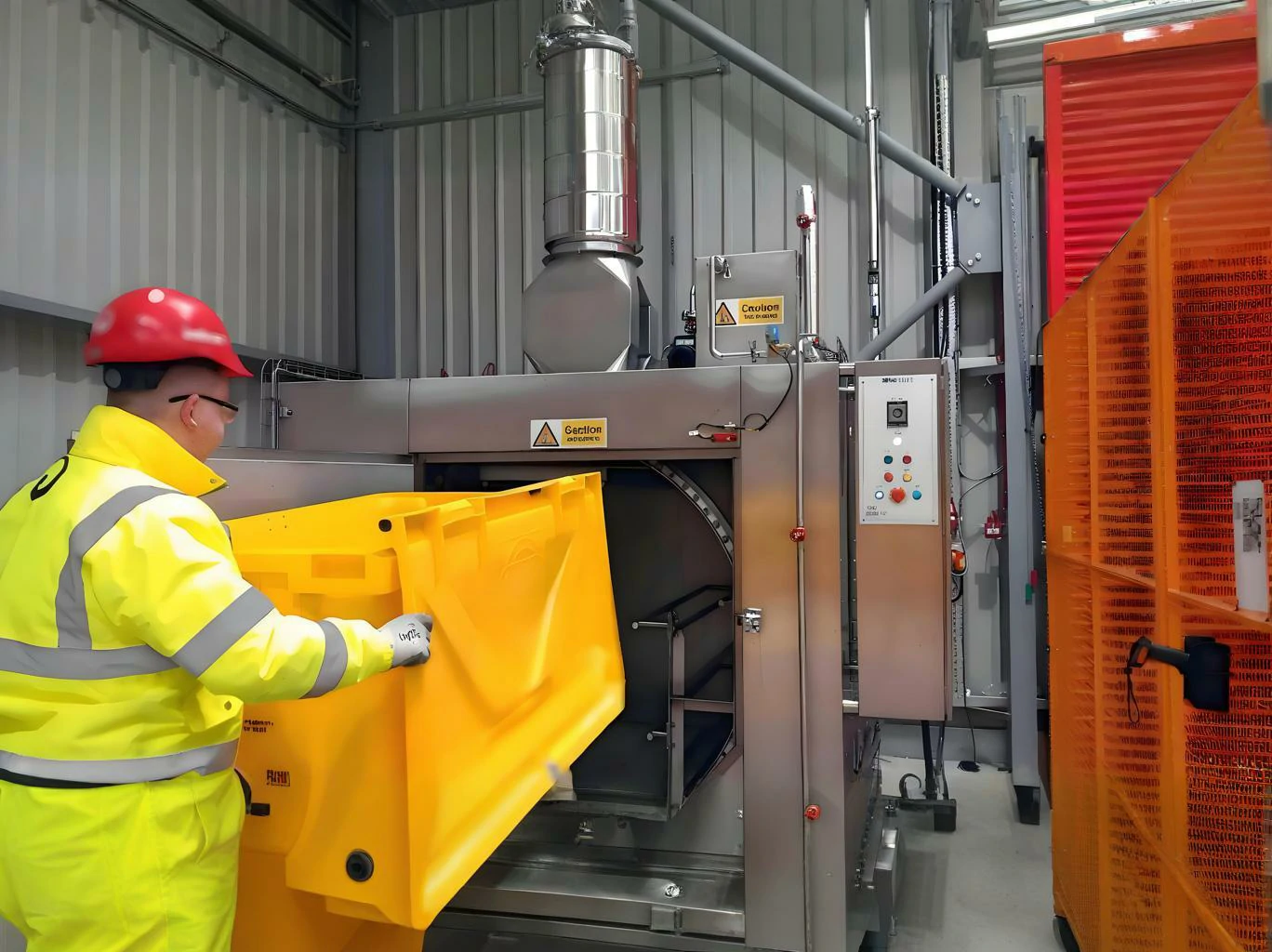
Les déchets sont placés dans la chambre de traitement, la porte est scellée et les paramètres appropriés (température, pression et durée) sont réglés en fonction du type et de la quantité de déchets.
03
Processus de traitement
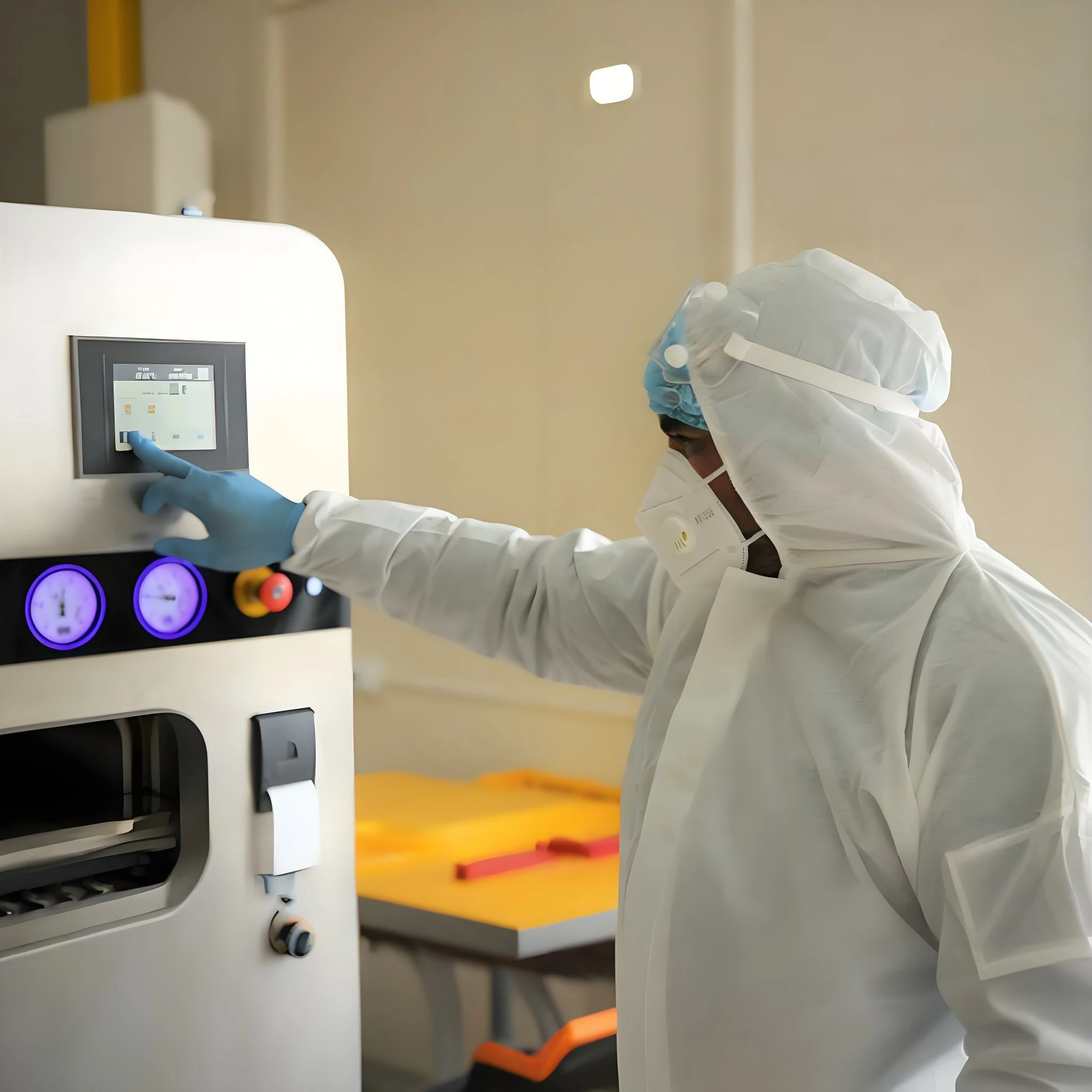
Le système préchauffe la chambre dans les conditions souhaitées. Après le traitement, la pression et la température sont progressivement réduites, et les déchets traités sont évacués une fois que la chambre peut être ouverte en toute sécurité.
Principales mises en garde pour un fonctionnement sûr

Formation
Les opérateurs doivent avoir reçu une formation professionnelle et être familiarisés avec les procédures de sécurité et le fonctionnement de l'équipement.

Manipulation
Veillez à ce que les sacs à déchets ne se brisent pas pendant le chargement afin d'éviter les fuites.

Entretien régulier
Vérifier régulièrement les performances de l'équipement, y compris le système d'étanchéité, la production de vapeur et le contrôle de la pression, afin d'assurer un fonctionnement sans heurts.

Contrôle des paramètres
Contrôler strictement la température, la pression et la durée du traitement pour éviter une stérilisation incomplète ou un endommagement de l'équipement.

Traitement des déchets chimiques
Des précautions particulières doivent être prises lors du traitement des déchets chimiques afin d'éviter les réactions dangereuses.

Tenue de registres
Tenir des registres détaillés des opérations de l'équipement, y compris les types et les quantités de déchets médicaux traités, les paramètres de traitement et les registres d'entretien.
Élimination des déchets après traitement
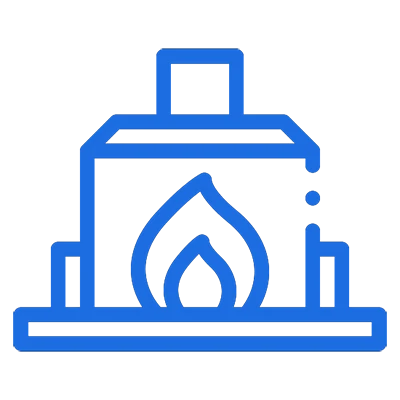
Élimination des déchets non dangereux
Les déchets traités qui répondent aux normes de non-dangerosité peuvent être éliminés en toute sécurité dans des décharges ou incinérés si nécessaire.
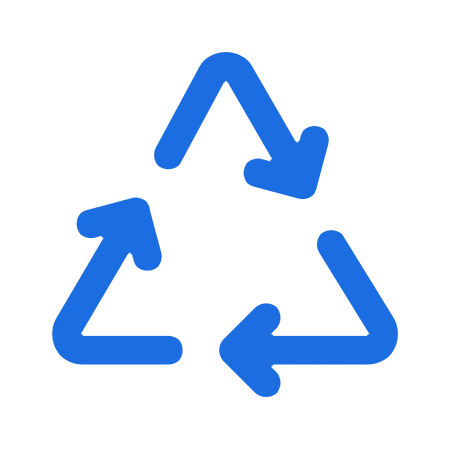
Recyclage
Les objets tels que les instruments métalliques peuvent être recyclés s'ils ne sont pas gravement endommagés, après avoir été nettoyés, désinfectés et testés de manière appropriée.

Traitement spécial
Les déchets résiduels qui présentent encore un risque ou qui ne répondent pas aux normes de mise en décharge peuvent nécessiter un traitement supplémentaire (par exemple, l'incinération).
Principaux éléments à prendre en compte lors du choix d'un équipement de traitement à la vapeur à haute température
Performance
Il faut s'assurer que la température et la pression sont précises et stables, que la chambre de traitement est suffisamment grande et que les fuites de vapeur sont minimes. Le matériau de l'équipement doit être résistant à la corrosion et à la chaleur.
Sécurité
L'équipement doit comporter des dispositifs de protection contre les surpressions, les surchauffes et les fuites afin de garantir la sécurité de l'opérateur.
Impact sur l'environnement
Choisissez des équipements à haut rendement énergétique qui répondent aux normes de protection de l'environnement en matière de drainage, d'émissions de gaz d'échappement et de niveaux sonores.
Support après-vente
Choisissez un fabricant qui offre un service après-vente fiable, comprenant l'installation, la formation, la maintenance et l'assistance technique.
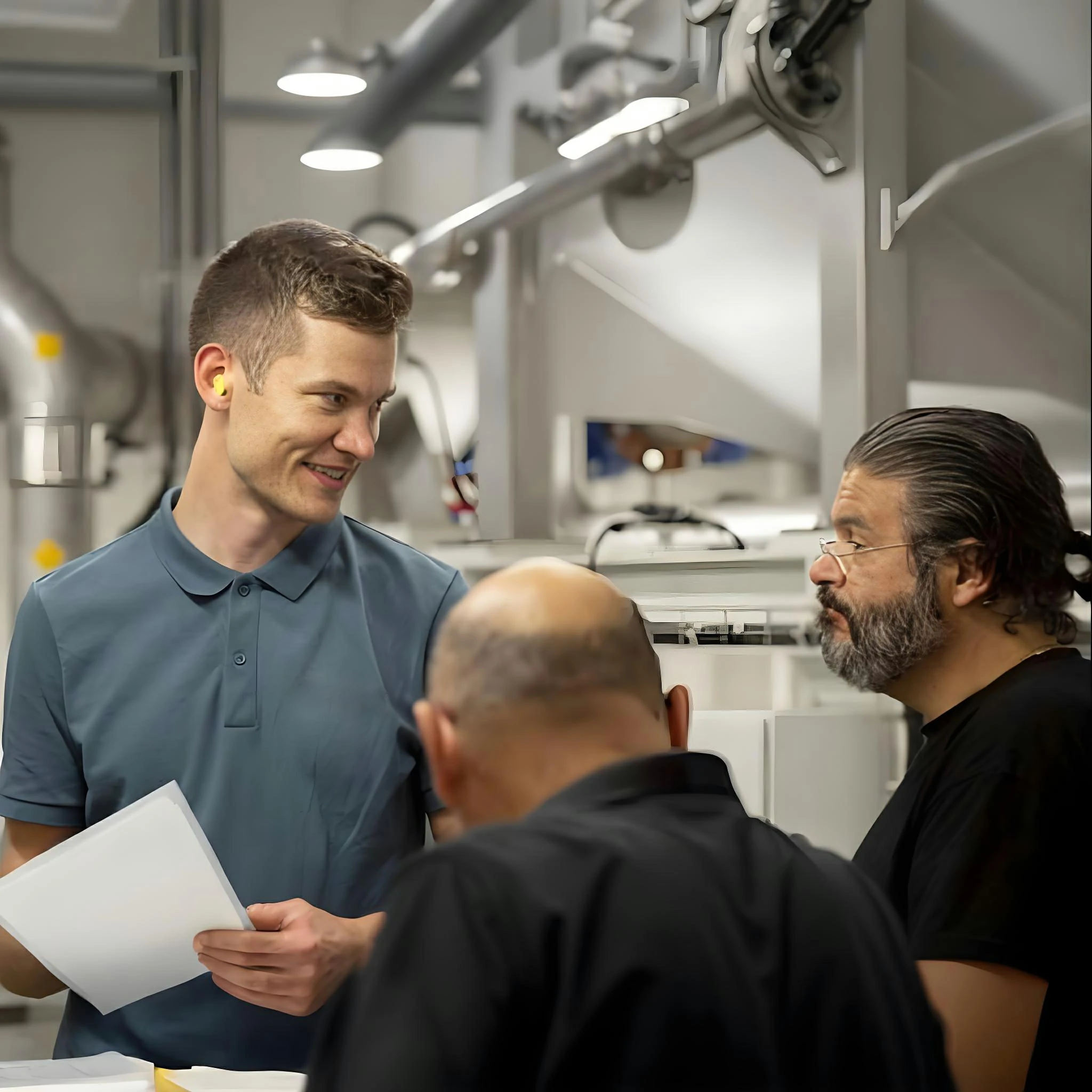
Normes et réglementations internationales
Lignes directrices de l'OMS
L'Organisation mondiale de la santé préconise une gestion sûre des déchets médicaux, en veillant à ce que les agents pathogènes soient inactivés et que les déchets traités respectent les normes environnementales locales.
Règlements chinois
La Chine Règlement sur la gestion des déchets médicaux exigent que les unités de traitement possèdent les qualifications appropriées et que les processus de traitement suivent les procédures prescrites pour garantir la protection de l'environnement et l'hygiène.
Principaux fabricants de traitement à la vapeur à haute température des déchets médicaux
Les fabricants chinois ont une grande expérience dans le développement d'équipements de traitement des déchets médicaux, offrant des solutions personnalisées et un solide service après-vente à diverses institutions médicales.
FAQ
Biosafe offre une gamme complète de produits de haute qualité, soutenue par 16 ans d'expertise industrielle. Nous excellons dans la compréhension des réglementations mondiales, dans la fourniture de solutions sur mesure et dans la prestation d'un service après-vente fiable grâce à notre réseau d'ingénieurs locaux.
Tous nos produits sont soumis à des contrôles de qualité rigoureux et sont certifiés CE, ce qui garantit qu'ils respectent et dépassent les normes réglementaires mondiales. Notre connaissance approfondie des lois internationales nous permet de guider nos clients en matière de conformité, quel que soit l'endroit où ils opèrent.
Oui, Biosafe dispose d'un stock important et propose des livraisons rapides, y compris des services porte-à-porte. Nous comprenons l'urgence de la gestion des déchets médicaux et sommes équipés pour fournir une assistance rapide lorsque vous en avez le plus besoin.
Notre engagement à satisfaire nos clients ne s'arrête pas à la vente. Nous fournissons une assistance permanente par l'intermédiaire de nos ingénieurs locaux, afin de garantir la résolution rapide de tout problème. Nous offrons également des conseils pour aider nos clients à tirer le meilleur parti de nos produits et solutions.
Biosafe possède une vaste expérience dans l'assistance aux clients dans le cadre d'appels d'offres pour des produits médicaux. Nous fournissons des conseils d'experts sur la sélection des produits, la documentation de conformité et des solutions sur mesure pour répondre aux exigences spécifiques de chaque appel d'offres, aidant ainsi nos clients à réussir dans les processus d'appels d'offres concurrentiels.
Envoyer un message
Nous trouver
17th Floor, Caochangmen street, Nanjing City, Jiangsu Province, China
Courriel : [email protected]
Téléphone : +86 13276687134 Téléphone : +44 07516023572
